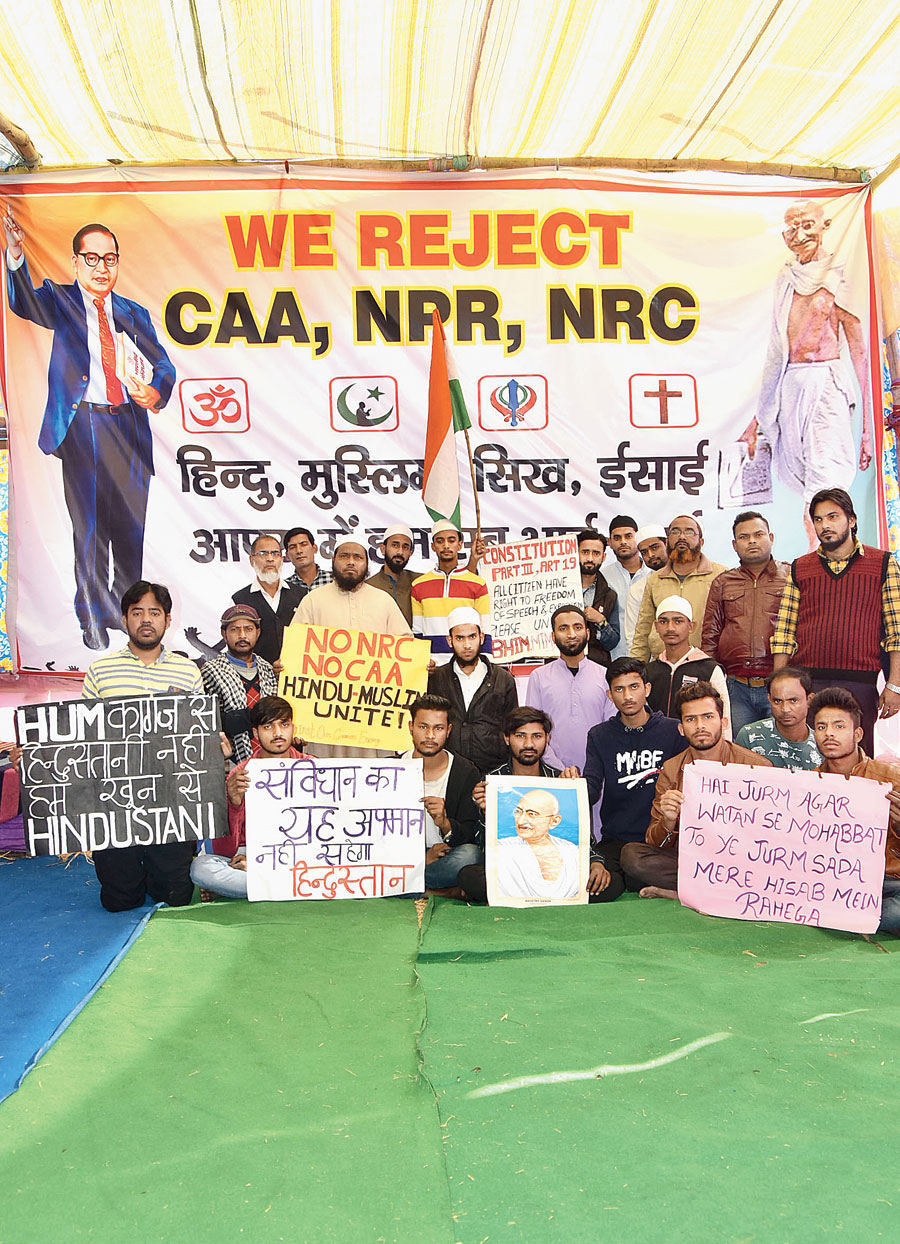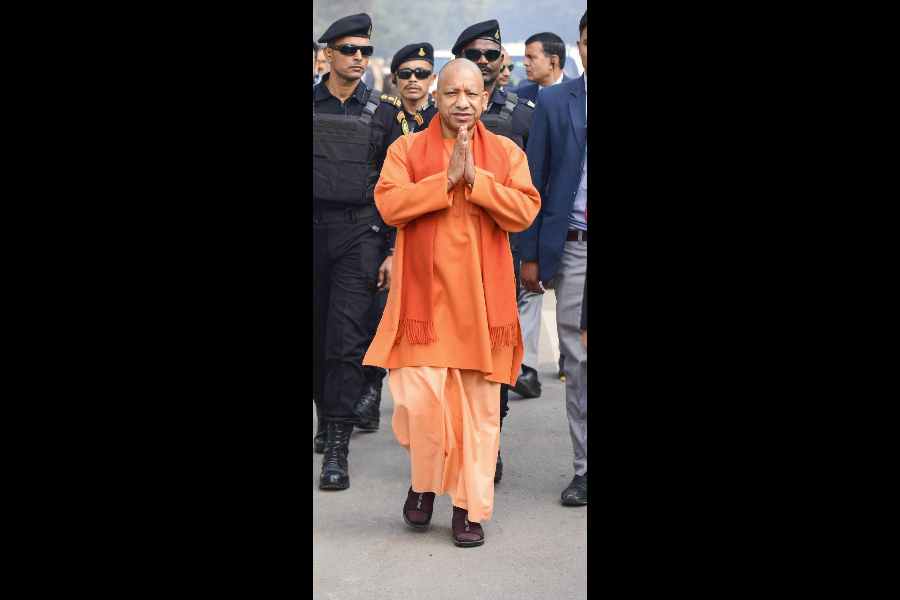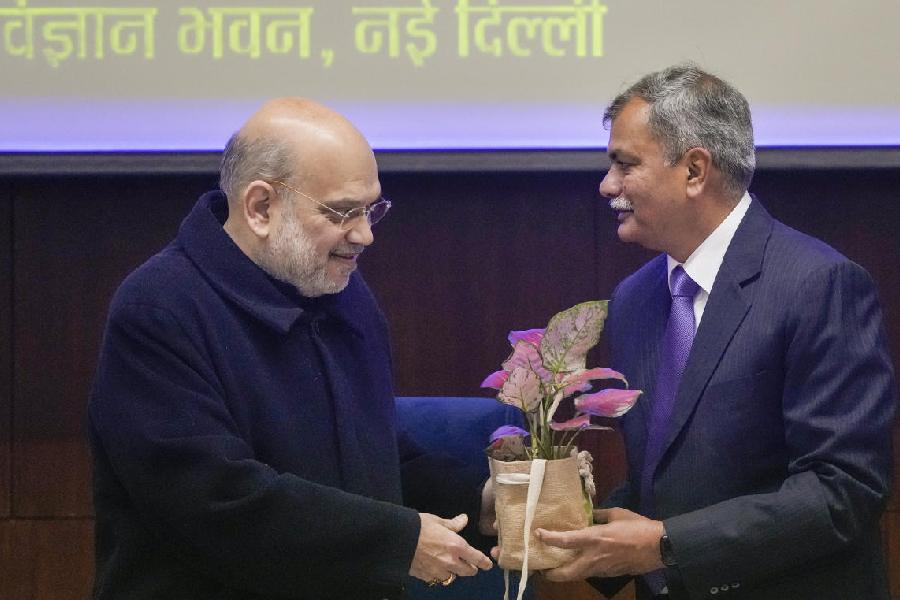Saif Ali, 21, a BTech student of Jahangirabad Institute of Technology at Barabanki in Uttar Predesh, had come home to Naya Bazaar on a holiday that he thinks has been utilised well because he got the opportunity to register his protest against the new citizenship matrix.
Around 60 people have been staging a satyagraha against the Citizenship (Amendment) Act (CAA) and National Register of Citizens (NRC) at Naya Bazaar, around 500 metres from Dhanbad station, since January 27.
Saif was one of them.
“In school, we were taught to raise our voice against injustice. If we don’t resist the attempt to snatch away the right to equality guaranteed by the Constitution, who will?” Saif said on Monday, a day before he leaves for Uttar Pradesh.
Saiyad Zaid Hussain, 19, a second-year Intermediate Commerce student at Ahsan Alam Memorial Inter College in Wasseypur, said the CAA and the NRC were discriminatory in nature and protesting against them was the only way to do justice to the knowledge gained in schools and colleges.
Tahseen Alam, 19, a grocery shop owner at Naya Bazaar, said: “I close my shop and sit here for four hours every day. I am suffering losses, but will continue doing this until the Centre withdraws the CAA. If we do not raise our voice at present, our future will be at stake.”
Forty-year-old Nazim Hikmat, a clerk in a private firm in Naya Bazaar, said around 60 residents of Wasseypur, Naya Bazaar, Panderpala and Shamsher Nagar had begun the satyagraha on January 27.
“The Centre is alluring a section of the society by promising them citizenship under the CAA. But under the NRC, only the rich and the influential will be able to prove their citizenship. People from the underprivileged section of the society, irrespective of their religion, will face a lot of difficulty in arranging the documents,” he said.
Saiyad Altmas, 31, a shopkeeper, said he couldn’t understand why those living in India for several generations were being asked to prove their credentials as citizens by submitting documents that might not be possible for them to furnish.
“The basic aim is to polarise people in the name of religion,” he added.











